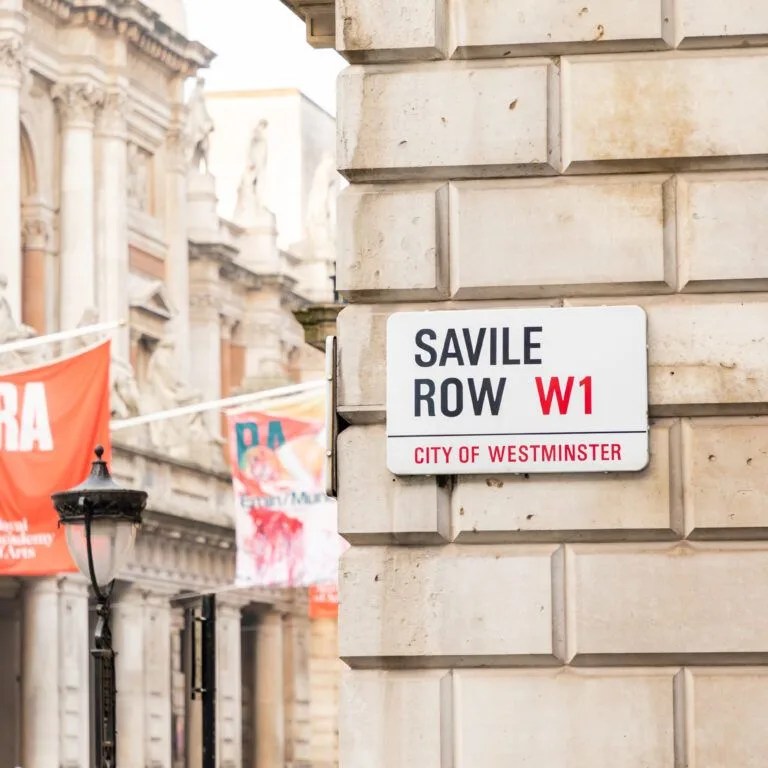There is one essential hurdle in recommending a bespoke tailor shop: geography. A custom-made experience comes down to the individual shop, or even the individual tailor; so much of a custom suit is the custom part, from walking into the shop the first time, to being measured, to being greeted again while you’re getting fitted and re-fitted.
You have to be there, and be there for a while. The place, whether it’s Gieves & Hawkes on London’s Savile Row or A. Caraceni on a side street in Milan, becomes a retreat from real life — where slow processes, and precise craftsmen, reign. That’s why, if you want to truly experience the pleasures of a bespoke suit, we can’t condone getting a suit made on the cheap from some fast fashion equivalent for formal attire you find online. Sure, made-to-order options abound, and they’re often pretty good, but they aren’t the same — and neither are the characters that make them.
That’s why suit makers, but also those that wear their suits religiously, cannot imagine a day when a street like Savile Row, which has long been home to some of the most famous (and talented) tailors in the world, becomes a bustling business corridor or a hub for high-end hotels. Unfortunately, though, this nightmare seems not so distant: A handful of tailors headquartered between 18 and 20 Savile Row were forced to relocate to other spots on the street after their landlord, The Pollen Estate, announced plans to redevelop a couple of the corridor’s keystone properties.
In total, The Pollen Estate, which is now majority-owned by Norway’s sovereign wealth fund, claims 45 buildings in London’s Mayfair neighborhood, where Savile Row is located. According to their site, it reads like the organization is committed to keeping the tailors around, but that might only be to aid in their ability to market the neighborhood to potential new tenants.
“Savile row could lose its identity if these plans are not carefully considered.”
The new tenants, if The Pollen Estate gets its way, will be restaurants, hotels and higher-end shops, including Restoration Hardware, an interiors store, and Clothsurgeon, a streetwear boutique. They won’t technically replace the tailors, but they’ll occupy the street-level commercial spaces, while the bespoke operations will work from basements and back studios. The Pollen Estate also plans to demolish two buildings in favor of a mixed-use complex for offices, restaurants and general interest stores, with a few of the leftover tailors filling in the holes.
Storied military tailor Welsh & Jefferies was one of the shops The Pollen Estate pushed around earlier this year.



